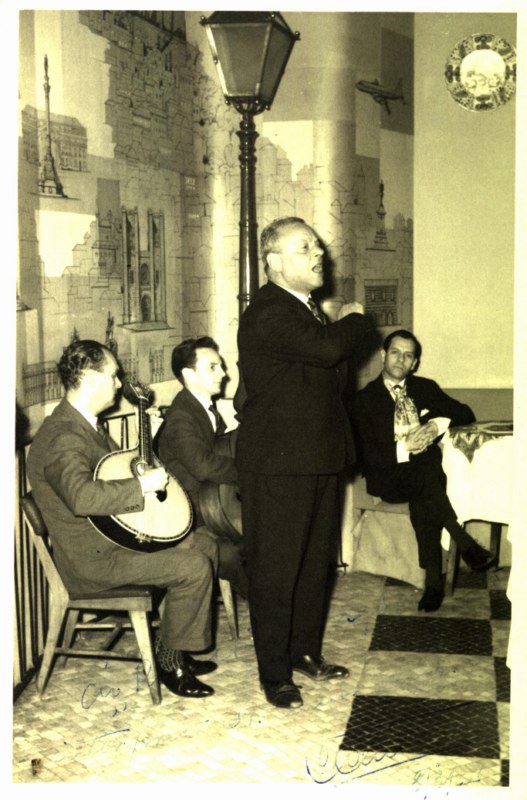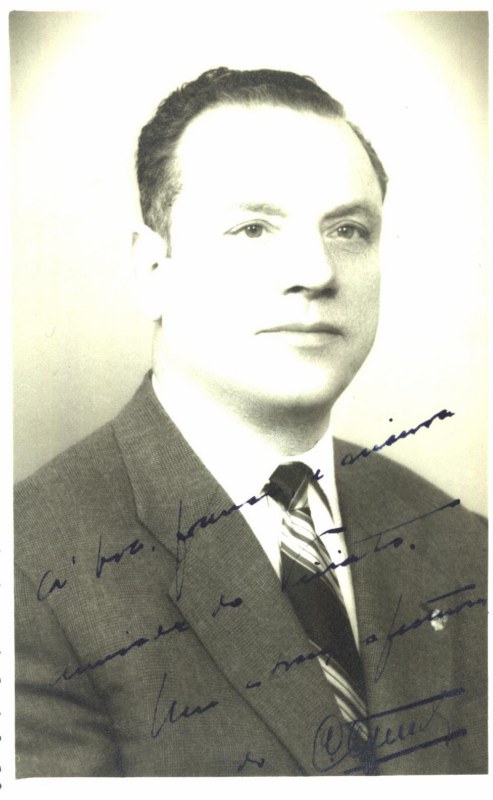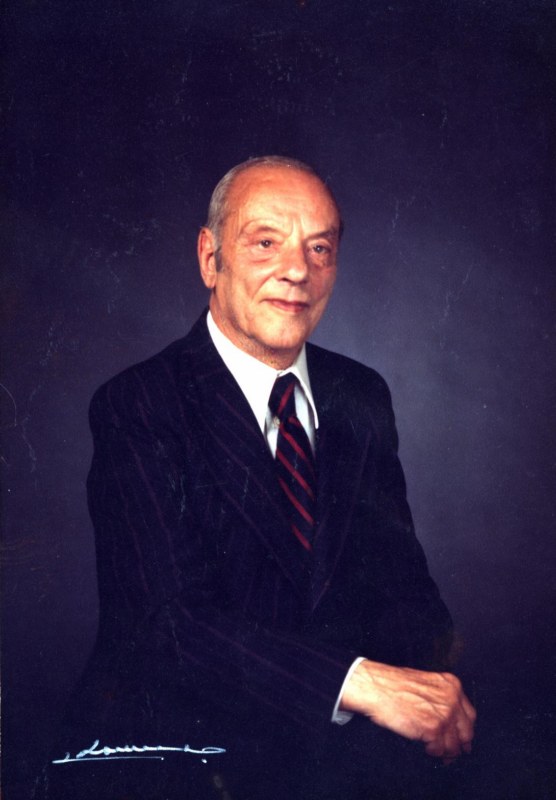Know more:
Carlos Conde
(N. 22 November, 1901 - M. 13 July, 1981)Carlos Augusto Conde, son of Maria Antónia da Silva Conde and Manuel José Conde, was born on November 22, 1901 in the village of Monte, Murtosa, Aveiro district. He married Laura dos Santos on September 18, 1936 and from that marriage three daughters were born, Noémia, Maria de Lourdes and Flora. Later they moved to Lisbon, settling in Praça das Amoreiras and in these first years of transition to the city, Carlos Conde is employed as head of office at F.H. de Oliveira.
If Carlos Conde had written the first verses before his professional career, the history of fado came to consecrate him as an outstanding popular poet, author of countless repertoires of fado and "cegadas", musicized throughout the decades of the 20s and 30s. When asked by the magazine “ABC” about the themes of his verses he will say: “Love, women, the countryside. I love the flowers, the clear waters, the sun, the light, the nature. Anything that has life, that has a soul. ” (cf. “Revista ABC”, 23 January 1931). Owner of immense talent, his pen fixed the imaginary of Lisbon, describing customs, personalities, nooks, alleys, alleys, festivities and other themes of the capital's daily life.
In 1924 the newspaper “A Alma de Portugal” highlighted Carlos Conde, characterizing the young poet: “Carlos Conde belongs to this plethora of new people who have recently become evident, in his literary baggage there are deserving productions (… ) Carlos Conde, not being a consecrated person, is nevertheless an inspired novel, his work is spread in the hands of the most competent singers and dispersed in the columns of the countless newspapers where he has collaborated with proficient study. ” (cf. “A Alma de Portugal”, 1st Quarter of September 1924). Carlos Conde's notoriety was often referred to by fado journals, which emerged over the 20s, 30s and 40s of the past century, which were central to the legitimation and dissemination of this musical expression.
Given the impossibility of naming all the blind texts that Carlos Conde wrote, we highlight the titles: “O Crime Daquela Noite” (1946) with music by Alfredo Silva, “Homem ao Mar” (1950) music by Casimiro Ramos, “Quatro Contos a Mais ”(1959), music by Albertino Vilar, among many other texts. These and other blinds took place in the communities, clubs and parties that populated the city of Lisbon and its surroundings.
The passion for writing leads Carlos Conde to participate and compete in numerous poetic contests, reaching, in most cases, the first prizes and honorable mentions. Highlight for the victory achieved, in 1966, with the lyrics for the “Anthem of the Air Force”, reinforcing the merits meanwhile already attributed to the poet over other decades.
Deeply cherished by the universe of fado, his poems were sung in the voice of the great fado figures: Ada de Castro, Adelina Ramos, Amália Rodrigues, Argentina Santos, Ercília Costa, Fernanda Maria, Lucília do Carmo, Maria Amélia Proença, Maria da Fé , Alfredo Duarte Júnior, Alfredo Marceneiro, Carlos do Carmo, Fernando Maurício, Gabino Ferreira, João Ferreira Rosa, Raul Pereira, Rodrigo, Vítor Duarte, among many others.
Carlos Conde was the author of hundreds of Fado lyrics, and they reveal him as one of the greatest exponents in the area. These fados were translated into real successes in the voices of many fado singers: “The woman who was yours”, “Baile dos Quintalinhos”, “Lisbon Neighborhoods”, “A rest from Mouraria”, “O Fado da Bica”, “I am not jealous”, “Rhapsody of old fado”, “Train dismantled”, “Do not pass it to my street”, “End of the last century”, among many others…
Parallel to his projection as a poet, Carlos Conde was the target of a large number of tributes, with special emphasis on the lunch celebrating his 50th birthday, which took place on 22 November 1951, at Adega Mesquita, with the presence of Francisco Radamanto, Felipe Pinto, Dr. Amaro de Almeida, Amália Rodrigues, Teresa Nunes, Alfredo Marceneiro, among others. Other tribute parties took place with the presence of many names from the artistic universe of radio, theater and fado and who were able to exalt the grandeur of their poetic and human work.
Victim of a tragic car accident, Carlos Conde died in July 1981.
In 2001, the Lisbon City Council pays a last tribute to the poet, by giving his name to one of the city's arteries located in the Campolide area.
Paulo Conde, Carlos Conde's grandson, published in September 2001 the book “Fado, Vida e Obra do Poeta Carlos Conde”. As it is an inexhaustible tribute to his grandfather, Paulo Conde reviews the whole life and consequent literary work of what is today considered a reference in fado poetry.
Source:
“Alma de Portugal”, 1ª Quinzena de Setembro de 1924
“A Canção do Povo”, 26 de Setembro de 1926
“Guitarra de Portugal2, 17 de Abril de 1926
“Guitarra de Portugal”, 10 de Agosto de 1928
“ABC”, 23 de Janeiro de 1931
“Guitarra de Portugal”, 15 de Março de 1948
Cartaz promocional da “Festa de Homenagem ao poeta popular Carlos Conde”, 29 de Março de 1958
“República”, 21 de Junho de 1966
Conde, Paulo (2001) “Fado, Vida e Obra do Poeta Carlos Conde”, Lisboa, Garrido Editores.
“Correio da Murtosa”, 28 de Novembro de 2007

Carlos Conde Severa, 1964

Carlos Conde, s/d.

Carlos Conde, s/d.
-
Não Passes Com Ela à Minha Rua Fernanda Maria (Carlos Conde / Miguel Ramos)